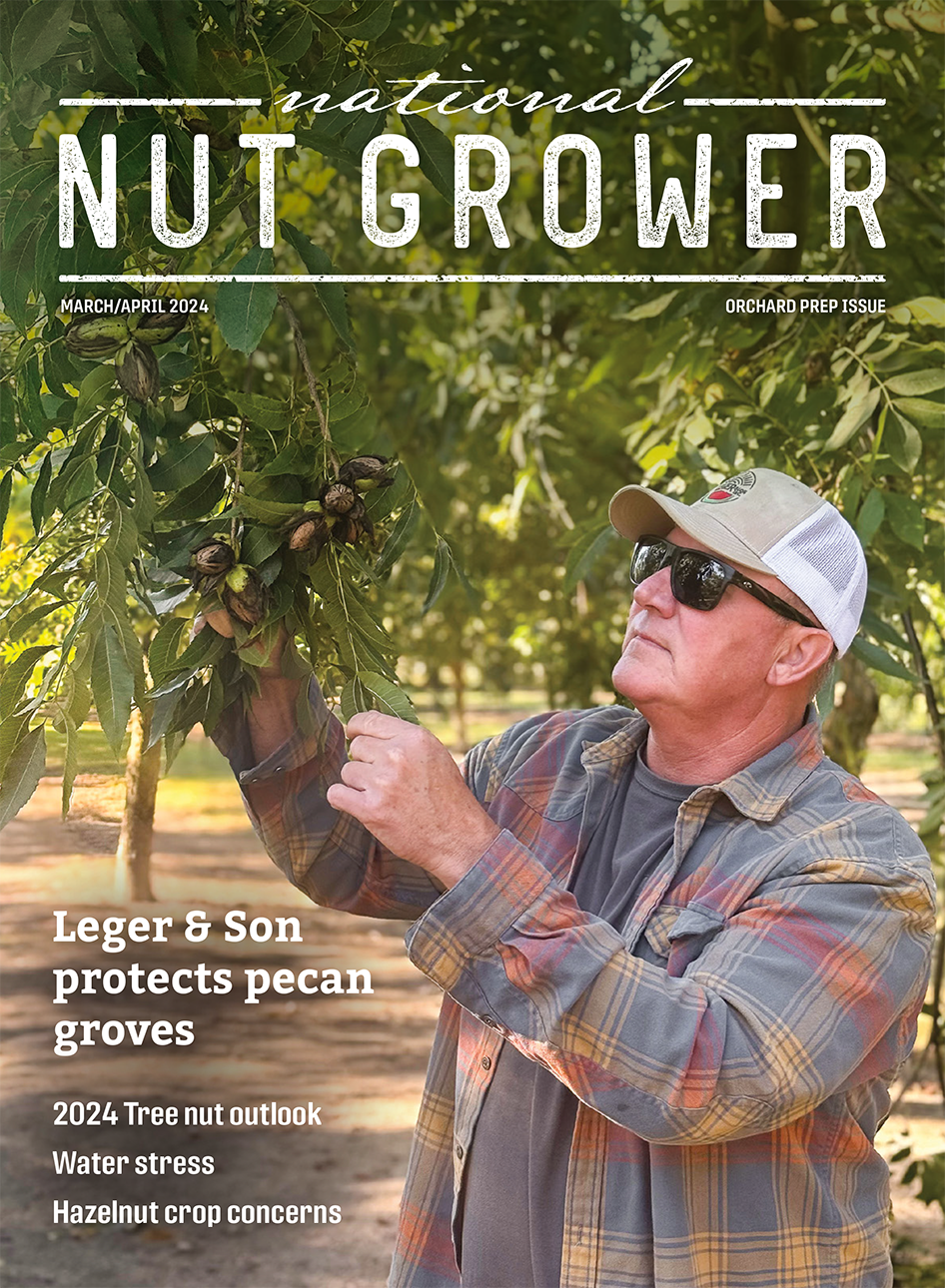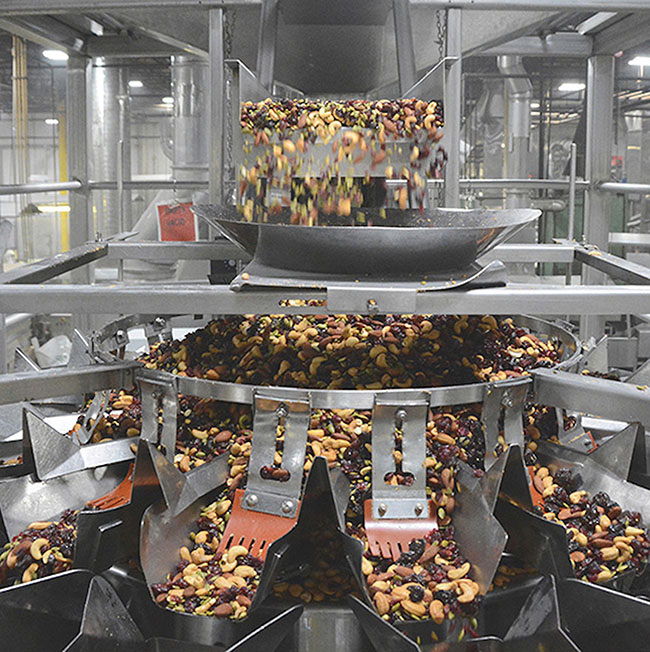
Fall 2021
Sourcing Sustainability
It’s been quite a year for pollinator awareness, and some major food companies are listening to the effects of the climate crisis and consumer demand. As a result, they’re kicking up more awareness and environmental responsibility.
Flagstone Foods, based in Minneapolis, Minnesota, is a private label manufacturer of nut-based snacks, and it recently made the pledge to source 100% of its almonds from bee-friendly farms by 2025, leading the charge in its industry.
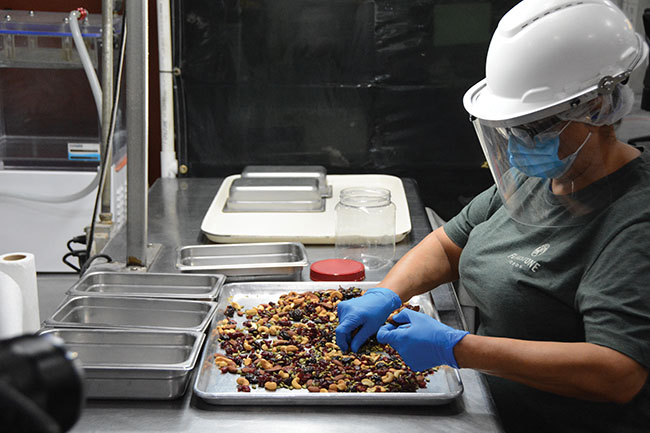
Though parts of the company have been around for decades, Flagstone Foods is a newly formed company and has sustainability at the forefront, including a full platform of sustainability initiatives for the company’s plants, raw material procurement and products. Though sustainability isn’t as prevalent in the world of private label as it is in branded companies, Flagstone saw the opportunity to capture both the benefits of conscious environmental decisions and differentiation from its competition.
“It’s not just the commercially viable thing to do, but also the right thing to do,” said Scott Easterwood, chief procurement officer at Flagstone Foods, about the decision.
As Flagstone’s second most volume nut, the company purchases millions of pounds of almonds annually. When the company was looking at its overall ingredient portfolio, the more the team learned about bee-friendly farming, the more it seemed to touch on everything the company was looking for.
“It’s good for the bees, it’s good for the community, it’s good for the environment,” said Easterwood. “It resonates with consumers as well, so it seemed a really good platform to take a look at.”
The Flagstone team, including Easterwood, visited California almond orchards during the last bloom to see firsthand how these bee-friendly practices are implemented, how growers deal with pesticides and the implications of importing bees from outside the state. Welcoming them on the other end was Pomona Farming – a private grower with roughly 40,000 acres of almonds and the common goal of sustainability and positive environmental stewardship.
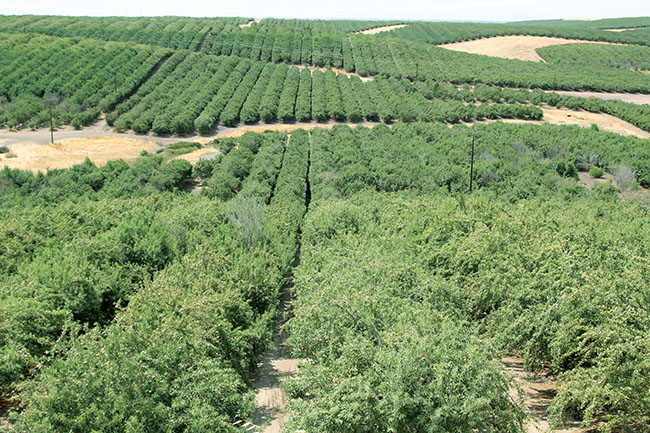
Raising standards
Pomona Farming has been investing in almond orchards for years, purchasing existing orchards and bringing up the management standards to meet a higher bar. Up and down the state, all of Pomona’s California acreage is farmed and managed the exact same way.
“We couldn’t afford to do it the wrong way,” said Allison Hoiberg, senior vice president at Pomona Farming. “People started taking an interest in how things were grown, and of course our investors would not be happy if we did not take care of the environment.”
For example, irrigation is often completely replaced after a new purchase in order to irrigate in the most efficient way possible, pollinator habitat is planted, and other changes are made to meet Pomona’s six keystone missions of reducing its carbon footprint, achieving zero waste, conserving water, implementing sustainable pest and weed management, and, of course, bee-friendly practices and the protection of pollinator habitat. The acreage also lends itself well to the piloting of new agtech – whether it be for improved monitoring, weed control, harvest equipment or anything else – and works with companies also looking to improve resource use and sustainability.
“It takes time. It’s not something you can do overnight, and
we want to make sure that it’s a growing number of the total crop,” said Easterwood about the certification process and expansion. “We felt we needed to just get out there and not only talk to growers and processors, but also just make them understand that it is something important to us.”
All of Pomona’s acreage is Bee Friendly Farming certified through Pollinator Partnership, and all of its almond orchards receive Gold ratings from the California Almond Sustainability Program.
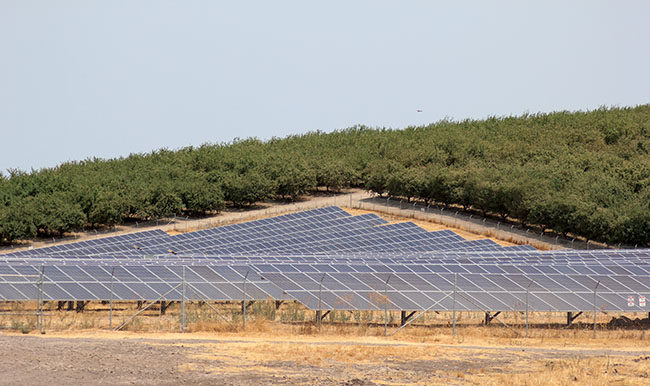
There is a strong draw from environmentally conscious consumers, which is helping to shape the decisions made by larger companies. Both Pomona and Flagstone are looking into additional and other certifications, with Flagstone considering obtaining its own, which would appeal to its bigger clients who sell to the end consumer.
It’s a positive domino effect that enacts change. Let’s say a Costco-shopping end consumer wants sustainability. Costco must provide such products in order for the company to stay relevant to that consumer. How does a store do that? By purchasing from a manufacturer who can provide it, who purchased from a grower who grew it according to certification specifications.
“Customers care about honeybees. Customers want sustainability,” said Hoiburg.
Easterwood is confident that this change in sourcing will echo consumer demand, especially since the concept of sustainability has moved forward from something niche to something mainstream.
“Side by side, given the choice of something that is not bee friendly and something that is, we believe the consumer will make the choice. It will be an incentive for them to pick it up,” said Easterwood.
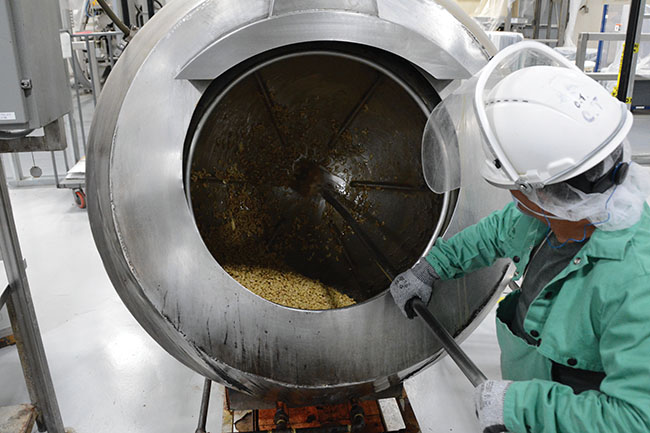
A next goal for Flagstone is to make sure its message is out there strongly, and launches are in the works to be sure the message and products gain traction. Alongside this is the research of other certifications and community-based initiatives available in various other countries from which Flagstone sources ingredients, such as those that grow cashews.
“It’s going to be different by nut type, but we’d like to build out a platform that has some sustainability or community piece of all our major ingredients,” Easterwood said. “It really is exciting.”
Pecans and walnuts are also among some of Flagstone’s top sourced nuts.
Above photo: Flagstone Foods







